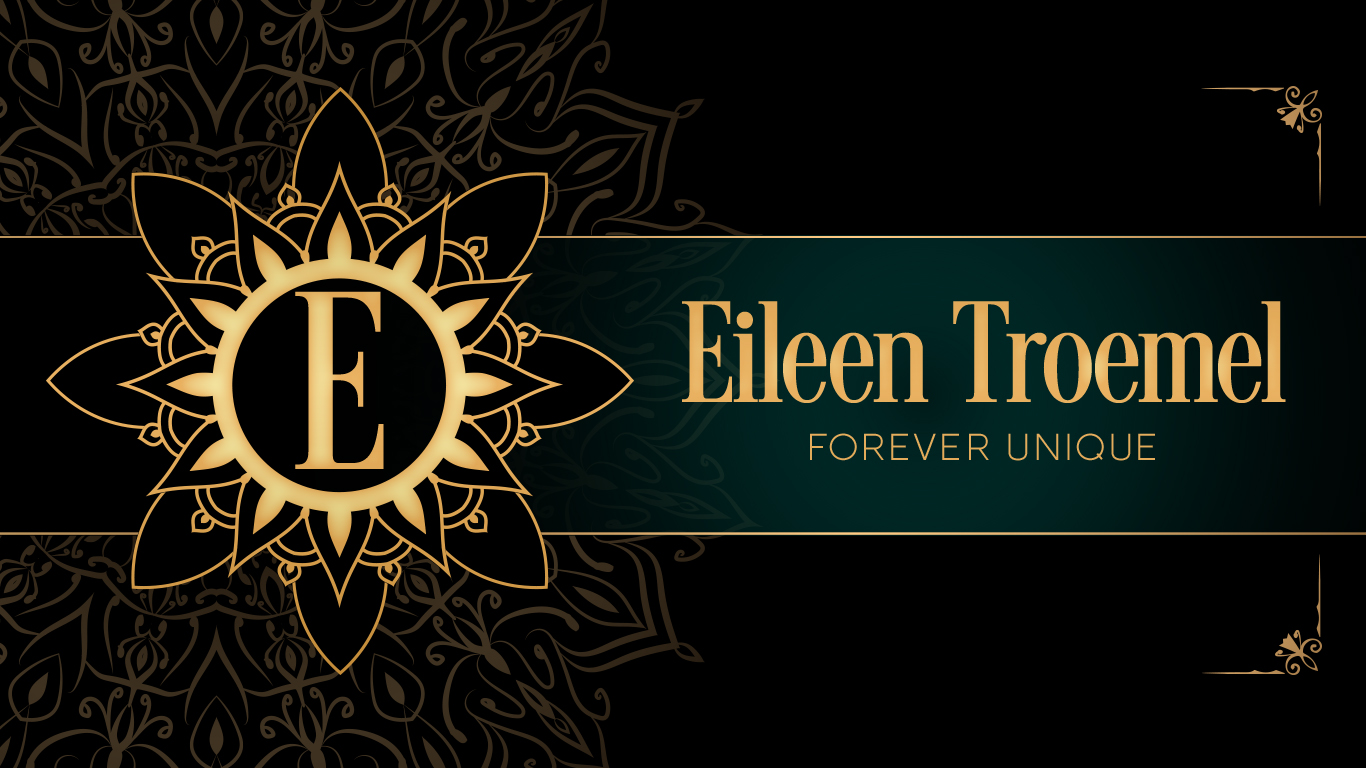Stephan was referred to me by a mutual friend. He has an fascinating background which I believe he uses in his books.
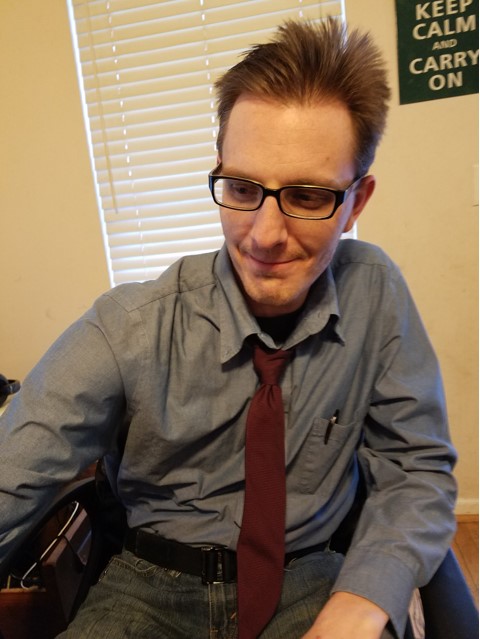
Author Bio:
Steve is a veteran of the Unites States Army Infantry.
His awards include:
Distinguished Service Cross,
Purple Heart,
Combat Infantryman’s Badge in addition to other awards. Reserve Police Officer & Police Firearms Instructor.
His most recent book is “The Problem of Morgan” the first book in a series.
Stephen Sanford lives in Michigan with his family and three dogs.
Stephen Sanford Titles:
“The Problem of Morgan“
“Shadows and Saints: Shadows of the Past“
“Home Built Bullet Proof.”
“Vampires of World War Two“
“The Boy and the Purple Heart.”
Titles coming soon. (expected 2019)
“Song of Karaticna” (Morgan series)
Untitled sequel to Shadows of the Past.
Tactical firearms training manual
1 Tell us about yourself.
I’m a story teller. I’ve lived a life that most people wouldn’t believe, and somehow, I managed to laugh at it. I was an Infantryman in the U.S. Army, they sent me to Iraq in 2005 during the height of the insurgency. I loved it. It was a great adventure, walking on the plains of Mesopotamia, the same dirt Alexander, the Persians, the Romans, had fought over. My fun came to an end when my unit raided an AQI safehouse early one morning. My unit had 13 men trapped in the house, under sustained machine gun fire (oh, and the building was on fire). Three of us walked in. I learned I can walk though hell that day. I also learned there’s a heavy price to pay for doing so. We got all the wounded out of the house, but my friend was hit in the neck outside. He died in my arms. The man the killed him then got my full attention, and I killed him. I got hit as well, taking a few bullets while I laid over my friend to protect him from incoming fire.
One of the bullets hit my left femoral vein, and I bled out in the street. The combat hospital thought I was dead until they pushed my body off the pile, and I screamed. They had to do a couple rounds of CPR on me, and I spend eighteen hours in surgery. My body armor was so riddled with bullets that every plate was shattered, and my commanders stopped counting at sixteen bullets that fell out of my armor.
Needless to say, that day made quite an impact on my life. I spent months in the hospital enduring pain that I can’t even begin to describe. The doctor said I’d never walk again. They said I’d never have kids. I decided I was going to get better after I got a divorce a few years after I was wounded. I spend months, years learning how to walk again. I learned how to jog. I proved everyone wrong, and I love doing that! The U.S. Army gave me a Distinguished Service Cross for my actions the day I was wounded.
I graduated from the Police academy in 2014. My son was born in 2010, and my daughter in 2017. Turns out I can have kids…lol. I got married again, despite my objects lol. (My wife said “we’re getting married Friday, be there…” I was there.) My wife is very understanding, and our life together is everything I didn’t know I wanted and more. Now I work teaching Firearms instruction to police officers, I’m a stay at home dad, and I write. Originally the writing was just me telling myself stories to distract myself from the pain I live with every day. But it’s grown into something else.
I try not to comment too much in this but thank you for your service.
2 When did you know you wanted to be an author?
Funny, I never wanted to be. Years ago, I was at a used book store and saw some novel that had an interesting title. My wife always teases me that I need to read more fiction, so I bought it. I finished reading it and it was the worst garbage I’d ever read. The facts were all made up, it was clear the author had no idea how either the military or Law Enforcement worked, let alone a crime scene or how people act in tense situations. All the characters were flat and one dimension. It was horrible. So, I looked up the author. Turn’s out he’s famous and has made millions selling that garbage. I decided I could do better. I knew I could make a better plot. So, I did. And everything about that book that I didn’t like I knew I’d done a better job when I wrote my first thriller. Of course, that doesn’t mean it sells, but hey. I don’t have big publishing firms marketing my stories. That part is a struggle, but I’ve never had a single complaint that my characters are flat! LOL
3 What genres do you like to read? Are these the same genres you write in?
Mostly I like to read more technical books. I’m a big fan of military history and I love those stories. True stories about things like that. I do like Tom Clancy, at least before he started having ghost writers do his work for him. I really like the old fearless adventure stories. I love the stories about Selous (African hunter/ guide/ soldier/ fearless adventurer) One of my favorite old books is “The Man Eaters of Tsavo” by Patterson. The movie “Ghost in the Darkness” was very loosely based in that account. I read some science fiction, but that is hit or miss. (Lasers on space warships… give me a break.)
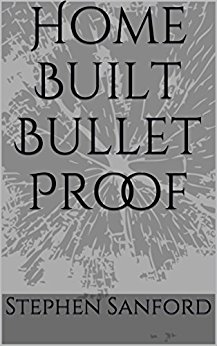
Using my experience as a soldier, cop, and ballistics nut, as well as multiple gunfight survivor. I wrote a small manual on how to build improvised body armor at home. Did all the testing, results, materials everything. The title is “Home Built Bullet Proof” and it was meant as a manual for people that might find themselves in some war-torn country or city. As well as soldiers, and NGO workers that might need a quick and cheap way to give themselves some protection for either a vehicle or themselves. It was one of my early books and I was still learning how to format, and all that. The information is great, but I could have included more illustrations, images and data. Now I’m working on a revised copy to correct some of those problems and expand on some of the history and uses of armor, things like that.
In fiction I have two series. First is “Shadows and Saints: Shadows of the Past.” This is about a shadowy branch of the FBI working to stop an unknown and almost impossible to trace assassin from using VX nerve gas to assassinate the President of the United States. Back in the 1970’s the United States got rid of large stocks of chemical weapons by loading the warheads on old liberty ships and sinking them. The original program was called “Cut holes and Sink ‘em” and it really happened. In shadows of the past the assassin uses a commercial salvage company to recover some of those chemical weapons. This was my first full novel, and the story is very good. As I’m learning there were some problems with the formatting and editing. I’m working hard to fix this in all my books. Anyway, there is a sequel I’m working on that will take the story from Shadows and saints’ further and expand the background on the characters as well as finish the plot from where shadows left off.
My other series is a science fiction series that I released the first book “The Problem of Morgan” in December. In “The Problem of Morgan’ an alien fighter pilot crashes on earth, her name is Morgan. “The Problem of Morgan” is by far my favorite.
4 Is your book for adults, young adults or children?
I think that all sorts of people can enjoy them… but they are more adult focused. I don’t write graphic sex scenes, but I try to let my characters be themselves. They swear when they want to, as someone might in the course of their life. For example, Morgan, as she learns English is liberal with profanity, but learns that it’s not always polite and so her speech matures and changes over time as she learns more about how local customs and use of language. On the other hand, some characters never swear because it’s just not who they are. When sex is necessary for the plot it is usually included but vague and inferred, not described. Personally, I wouldn’t have a problem with my eight-year-old son reading “The Problem of Morgan” but then I swear around him anyway and he knows its adult language and he isn’t supposed to use it. So, I’d probably say adults or young adults, with keeping in mind that I try and portray life and people as realistic and having multiple facets to their personality. No one is perfect in my stories.
5 What is your current release or project?
I have three currently. “The Song of Karaticna” which is the sequel to “The Problem of Morgan” and is finished but in the editing stage. The sequel to Shadows of the past is about half way done with the writing. I don’t have a title for that one yet, and honestly, I’m a little distracted by the Morgan series as there is so much going on, so many side plots and stories that there’s a lot more work there.
Lastly, I’m working on an instruction manual for tactical shooting. I learned a lot in all the gunfights I was in, and after many years of working on it I’ve come up with a way to teach it, explain the lessons. Not many firearms Instructors have been shot, shot others, taken multiple body armor hits, and nearly died from gunshot wounds. Using all that, I teach others how to live through the chaos and proximity to death of combat, or any dangerous situation. It’s partly a manual on shooting and winning a gunfight, but I also talk a lot about the importance of mental preparation, the willingness to live, the importance of never giving up. There’ll be other useful stuff in there, like CPR, stopping the bleeding and that sort of thing.
6 Tell us about the key characters
Morgan. LOL. I like the character, but not for the reasons most people think. She’s interesting to me because she follows her own moral code. She’s awkward, but confidant. She’s brave to the point of reckless, but she’ll walk into hell for someone she cares about or feels responsible for. While Morgan technically isn’t human, she works really hard to convince herself, and others that she is. In the book Morgan is described as the most advanced A.I. ever made. Because of concerns about AI that everyone has, the people that made her developed an interesting solution to the problem. They made Morgan with a built-in addiction to the human touch. She can’t turn on humanity and kill everyone because she physically needs to be touched, loved, to have sex, and spend time with a lover. She accepts that part of herself, despite not knowing the true reason for it.
The first time my wife read the first draft of Morgan (and keep in mind my wife is my most severe critic when it comes to a plot) she finished and threw the manuscript down. She loved it but was mad on about how it ended, the questions I left unanswered. Since then the book got an entire new introduction, and a completely different ending. But in all versions Morgan is Morgan. She’s playful, devoted, always looking for a good fight. She’s a fun character, even though there are times when I really don’t like her actions. And even after ten drafts, 500,000 words that I’ll never publish Morgan still surprises me with her actions. (I wrote the series through volume four before trashing all of it except the first book, which I rewrote the ending and beginning to several times.)
7 What is your blurb or synopsis of the book?
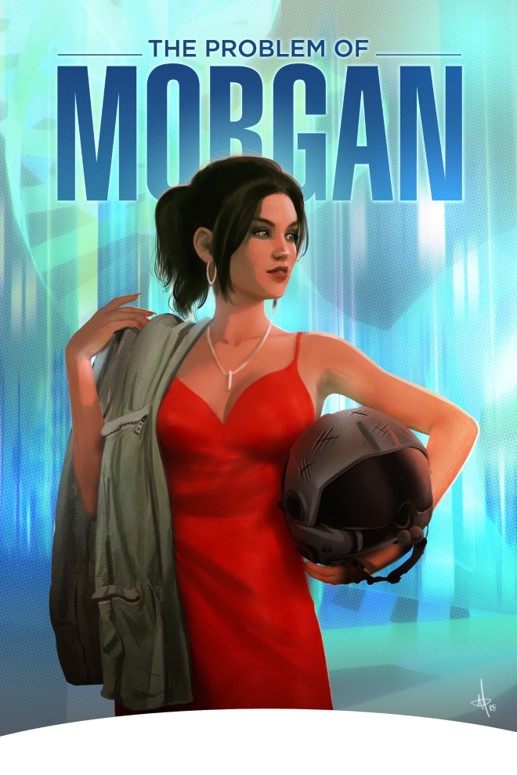
“The Problem of Morgan”
Earth, a back-water spec of habitation, far from anything important has mostly been left alone by the advanced civilizations of the Milky way galaxy. Everything changes when a war erupts between two powerful empires. It just happens that the backwater planet known as earth lies very near the front lines where the war is being fought. It’s suddenly an important place. Morgan is the flight systems operator/ pilot in the back seat of the two-place space fighter. During a fight near earth Morgan, the ace pilot is shot down, forced to eject into the God forsaken planet of earth. The pilot in the front seat doesn’t make it out, and for the first time in her life, Morgan is alone. She had been with him her entire life. She can’t be alone.
Two attempts to rescue her come at once, the Alien Imperial Battlefleet for whom she flies, and the U.S. Navy responding to a crash in the Pacific Ocean. An American fighter pilot spots Morgan first, her battered body floating on the surface of the green water. The American Pilot, Lieutenant Oscar Hall, only see’s Morgan’s life jacket, then is promptly shot down by Morgan’s friends, also coming to her aid. Morgan and Lt. Hall are both pulled from the waters of the Pacific Ocean by the Imperial Fleet. Once the aliens figure out they have a pilot that isn’t theirs they take the opportunity to establish diplomatic relations with earth. Earth will make an excellent forward base for the war they are fighting.
Morgan doesn’t much care about diplomatic relations, she is concerned with her own situation. Her navy won’t let her fly anymore, and it takes two to fly the fighter, no exceptions. Deciding to take matters into her own hands Morgan knows one person who can fly and doesn’t have a partner… Lt. Oscar Hall of the United States Navy. She’s determined he’ll be hers, and she’ll stop at nothing to get the American pilot in her bed. It’s very confusing when Morgan is turned down the first few times she offers the American pilot sex. Why doesn’t he understand that she’ll show him the universe in exchange for a little… DNA? She’s beautiful, laughs at his nerdy jokes, and is the best pilot he’s ever seen. Maybe too good? She isn’t used to not getting what she wants and doesn’t understand the Aliens. Why won’t he just put out?
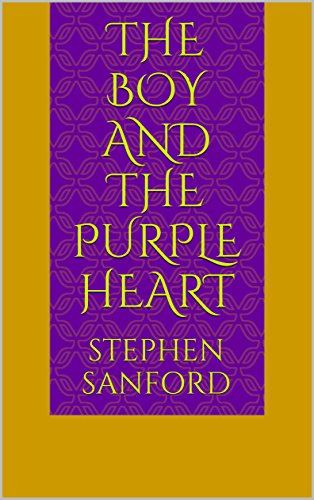
Questions start to rise in the mind of Lt. Hall. Are all aliens beautiful sex crazed fighter pilots, or is Morgan even different from her own people? Why does she have so much porn? While other women might snicker at his hand-built model ship collection, Morgan doesn’t. She knows that muscle memory and fine motor skills have other uses….
When they finally learn to talk and begin to understand the other, things take off. Morgan gets someone to fly with, Lt. Hall gets to see the universe. Oscar may have forgotten, there’s a war on. After racking up a good score of enemy fighters Morgan and Oscar are confronted with a choice. One of them must sacrifice their life for the other. It is only then they both learn this isn’t just casual sex and flying. Will they learn in time?
8 Share an excerpt
Sitting in the back seat of the fighter, Morgan is trying with all her considerable skill to prevent the fighter from following a ballistic trajectory into a large body of water that you know as the Pacific Ocean. Normally a pilot in her situation would pull the black and yellow striped handles and eject from the stricken craft. There is a very good (at least to her) reason that she won’t eject. She’s in the back seat, her pilot is in the front seat, and seems to not be breathing normally. He’s making some sort of gurgling sound, as his form is being thrown around the front seat. Morgan, not being exactly a doctor knows it’s not good at all.
The fire on the port side, and the gas (gas as a state, not gasoline as a fuel) leak on the starboard side are preventing the fighter from recovering from its long, long, fall to the ocean’s surface. If you were standing next to her in the cockpit you won’t be able to see the flight displays, but she can, and she’s been ignoring the “EJECT” “EJECT” warning flashing in the red display while she tries to save her pilot. The fighter is wobble spinning down, her head is banging around the cockpit. Her arms, stronger than they look are fighting with the controls, struggling against forces she can’t control.
Morgan is bleeding, a hole is torn in her pressure suit, pieces of bone are sticking out. Blood is coming out of her nose and oozing from around the earbuds she is wearing inside her helmet. She ignores it, trying to yell at her dead pilot as she is tossed around the cockpit by the acceleration forces. He is, with all his faults, her responsibility. She can hear his body banging around lifelessly in the front seat. She still thinks she can save him. She hasn’t noticed that pieces of his jaw are sticking out of her chest.
Gasses and small pieces of the fighter are ripping off violently in the slip stream. Nothing is working. There is only one more thing she can do. She puts out an emergency signal, calls mayday, and pulls the ejection handles between her legs as hard as she can.
She waited too long.
The ejection is hard on her. Connected to the sensory nerve ending of the fighter enabled her to fly it past the ragged edge. The down side is that ejecting with the connection live tears into her nervous system. The pain is beyond description. The escape capsule is heavily damaged, the secondary flight systems computer figures this out, it triggers the backup ejection seat, banging Morgan around as her seat rockets upward away from the fighter just as the craft hits hard into the surface of the ocean.
Fragments from the impact of the fighter turn into shrapnel and slice into her legs and torso as the escape capsule is thrown clear of the impact. She trails blood as she strains to paddle clear of the wreckage of her fighter. She remembers to focus, fighting to unhook herself before diving and trying to reach her pilot. His ejection seat didn’t activate, and he’s still strapped in, sinking. Her brain is all fuzzy from the connection to the fighter being violently severed. All she sees is black, cold and deep water.
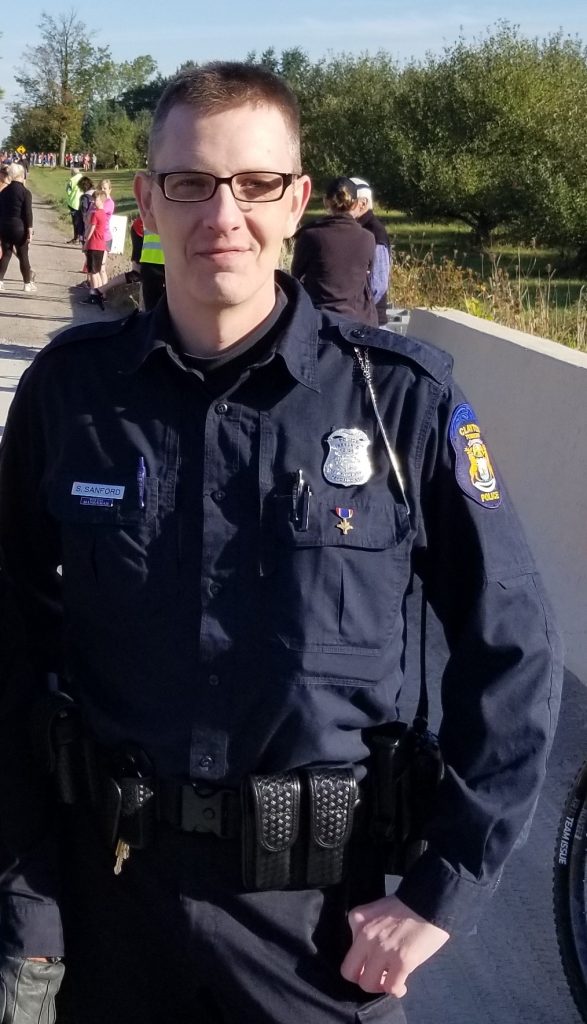
The shattered visor of her helmet lets in the seawater as she dives. Her lungs tell her she must breathe, but she ignores them, trying to catch the sinking fighter. She can’t dive fast enough, and the wreckage sinks from her sight. Her life vest detects she is in the water and automatically inflates, forcing her to the surface, her limp form trailing blood into the green waves. The yellow life vest just holds her airway above the surface as bloody sea water drains from the shattered visor. Morgan slowly comes around, spitting and coughing up the salty water of the alien world. She’s alone, gently riding the ocean swells.
9. Do you have a favorite scene?
Oh yes. Page 325 “The Problem of Morgan.” Mostly people who have read the book seem to skim over this part. Morgan is in the hospital after almost being killed ejecting from the fighter with Oscar after a battle. The pair are on her country’s Warship, Prince Carl, deep in space. She is in a coma and Oscar, unable to come to terms with what he is feeling visits the ship’s chapel. The priest looks just like Oscar’s childhood priest from earth…? The priest chews him out. Tells him he is an idiot and tells him a parable. It’s one of my favorite parts of the book because I know how many other strings and plots that scene is connected to. What Oscar figures out too late is that Morgan’s people don’t have chaplains on their warships. But was it Oscar’s imagination he was talking to? Or is something else at work? Anyway, it’s a good scene that has lots of connections to later parts of the story. You really need to pay attention to the details in my books, as I usually leave very, very, subtle clues through the story. (Perhaps too subtle I’ll admit.)
10. What advice would you give a beginner?
Be honest with yourself. Always have a motivation for everything and anything your characters do. Some reads will forgive a flat character, I will not. I throw the book away.
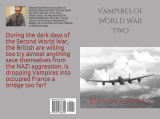
Write what you know. If you are writing about anything do your research. The moment some character puts a new “clip” in their pistol I stop reading. If the character is a firearms expert the author must be as well. If you can’t be an expert, be vague. How can I, a man write what a woman feels during sex? I can’t, so I don’t write it, I let the reader use my vague references to make up their own story about what its like. If you write what you know your plots and stories will be better. If you’re writing imagine a scene. Ask yourself what does it smell like? How warm or cold is the room? Let yourself be in the scene. Don’t force your characters to do things just because you think they should. Don’t tell me the taste of food, tell me the texture and temperature, the smell, and the way the two people eating are looking at one another. Is he watching her eat for the voyeuristic joy of watching her enjoyment, or is he ignoring her and thinking about something else?
Edit. Edit the crap out of it. Finish the story by letting it all come out. All the poor grammar, the random coma’s and the WTF capitalization you fix after the story is written. It took me a lot of time to develop a system to edit. First, I write the story, just letting the story flow. I leave loose ends, and bad grammar. I just write. Then I edit. I fix everything I can find, which leaves a lot. I then do it again and add in things to fix plot holes, expand scenes to make sure everything is consistent. At this point I’ll let a few select people read the draft. I ask them to tell me what didn’t make sense, what I need to add, what they liked and what they didn’t. When that’s done, and this is the important part, I listen to my story. I use the text to speech feature in word. I follow along and fix anything that doesn’t make sense read aloud. I do that at least twice. I put my noise canceling headphones on (young children, lol) and I listen. When I do that I know if I’ve got a good story or not. I don’t find all the mistakes, but if I find one later, I fix it even if it means re uploading a new manuscript onto amazon’s KDP.
People judge a book by it’s cover. Use services like Fiverr to have some help making a cover. The market. If you are using amazon, make use of those free kindle book giveaways, do this as often as you can (five days every ninety days per title). You’re not going to make money, just accept it. Once you have a few people read your book for free and leave a review then the book with start to sell. Oh, don’t use the Facebook ads. Facebook is so full of spam and click bait it’s just a waste of time and money. However, the amazon ads service is well worth it. Every author I’ve spoken too has told me the same thing, no one I’ve talked to has had any luck with Facebook ads.
Social Media Links:
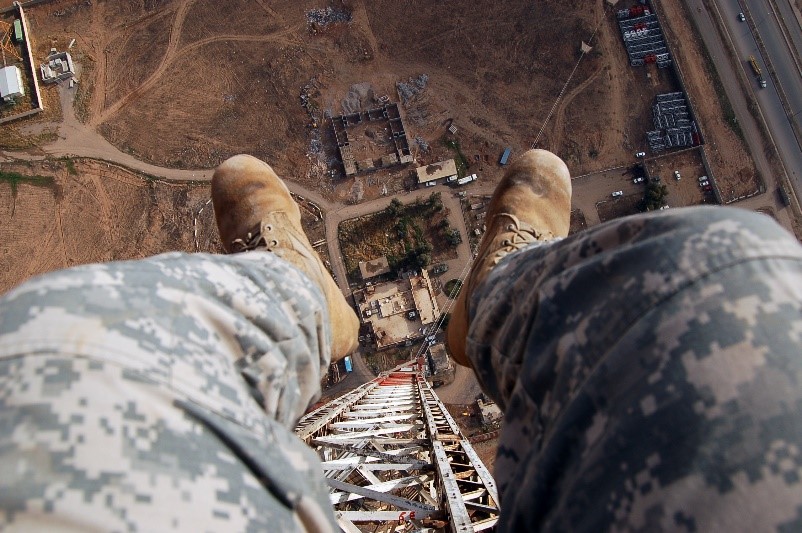
As an Amazon Associate I earn from qualifying purchases. This does not affect the cost of the item at all.
